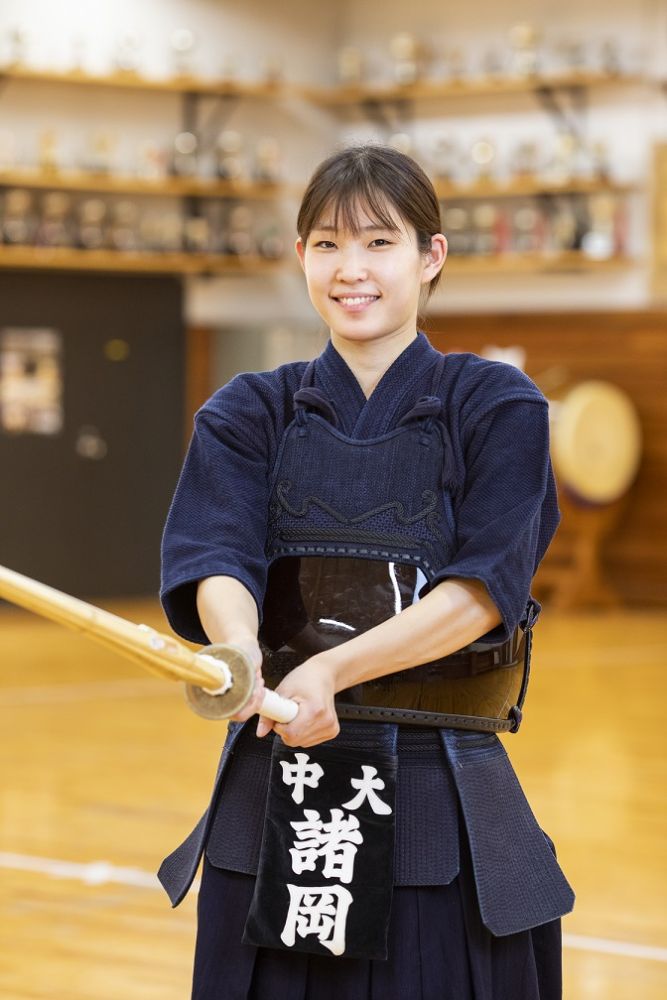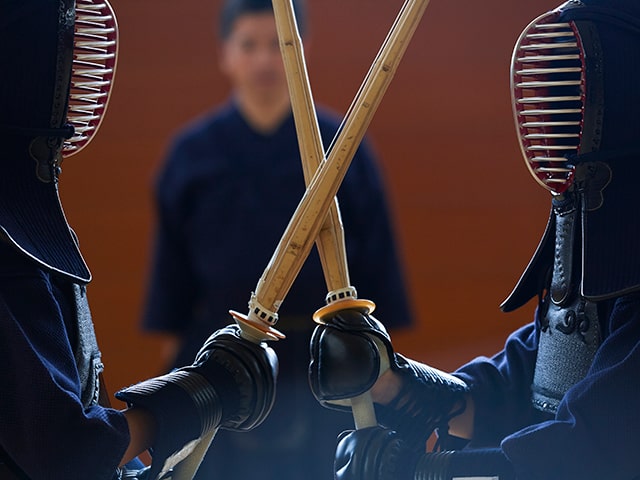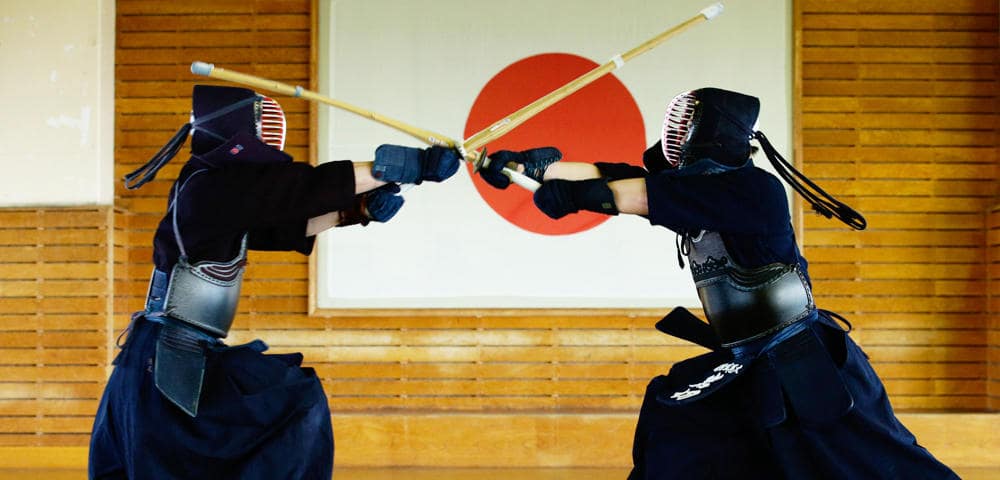
Kendo is a traditional Japanese martial art and is deeply rooted as a competitive sport in many universities.
The university’s Kendo club, which is considered particularly strong, is highly praised both domestically and internationally for its high technical ability and spiritual education.
In this article, we take a deep dive into Japan’s Kendo powerhouse universities and explore how each university has built and maintained its position.
We will also provide a detailed explanation of the influence of famous kendo practitioners from these universities, as well as the cultural and educational value of university kendo.
We aim to provide valuable information not only for those interested in Kendo but also for all readers interested in Japanese martial arts culture.
目次
- 1 Introduction: Kendo universities and their importance
- 2 Characteristics and achievements of Japan’s powerful Kendo universities
- 3 Practice methods and curriculum of Kendo powerhouse universities
- 4 A university that produced famous kendo practitioners
- 5 The role and influence of university kendo both domestically and internationally
- 6 Future prospects and challenges
- 7 Summary: Future and expectations of Kendo University Club
Introduction: Kendo universities and their importance
Kendo universities have a long history and tradition, and their influence is important in the kendo world.
These universities are often known as prestigious kendo schools and have produced many outstanding athletes.
Their tradition influences the entire kendo community in terms of technique, mental proficiency, and competitive success.
Social significance and value of university kendo
University Kendo is more than just a sports activity; it has social significance and value.
First of all, university kendo is a place of moral education for young people and promotes spiritual growth.
Kendo teaches you many values, such as politeness, patience, concentration, and respect for others.
Furthermore, University Kendo also makes a cultural contribution to the local community.
The university’s Kendo club participates in local events and festivals, and teaches Kendo to local children, thereby promoting the spread of Kendo and deepening ties with the local community.
In addition, the success of university kendo becomes a source of pride for the region and brings vitality to the entire local community.
Furthermore, the competitive aspect of university kendo is also important.
The presence of a strong university promotes an improvement in the level of competition in the kendo world and provides inspiration to other universities and regional teams.
Their competitive ability will also lead to the development of athletes representing Japan in domestic and international competitions.
In this way, through their history and influence, kendo universities have great significance for the entire kendo world and contribute to society as well.

Characteristics and achievements of Japan’s powerful Kendo universities
We will introduce some universities that are considered particularly strong in Japanese Kendo.
The following universities have remarkable achievements in Kendo, and many excellent results in national tournaments have been reported.
- University of Tsukuba – The University of Tsukuba is not only top-ranked in Kendo, but also in many other sports. The Kendo club has received high praise in competitions both domestically and internationally, and has produced many medalists.
- Meiji University – Meiji University is known for its extensive club activities, and sports, including Kendo, are highly valued as part of student life. Meiji University students display energetic and active sportsmanship.
- University of Tokyo – The University of Tokyo is not only academically excellent, but also has a strong track record in sports, especially Kendo.
These universities not only have strong athletics, including kendo, but also receive high praise both domestically and internationally for their academics.
Kendo clubs at each university practice rigorously every day, improve teamwork and individual skills, and have achieved success at national tournaments ( Times Higher Education (THE) ) ( EduRank ) ( Meiji University )
The University of Tsukuba in particular boasts an especially excellent track record.
The university has had significant success in national competitions, and students practice and compete at a high level.
The University of Tsukuba’s Kendo Club not only develops individual techniques but also teamwork through intensive training and practice matches.
Our students have achieved remarkable results in many competitions, including the National Student Kendo Championship ( Kendo Jidai International ) .
University Kendo club introduction and its history
Meiji University is also known for its many sports, including Kendo, and is said to have many active and positive students.
Sports clubs, including the Kendo club, play a central role in student life, contributing not only to competition but also to improving students’ social skills and leadership ( Meiji University ) .
Competition results and prestigious awards
According to the All Japan Kendo Federation, the University of Tsukuba and other top universities consistently rank highly in national kendo competitions.
These universities have won many medals and accolades, both individual and collective.
Particularly noteworthy is his success in high-level competitions such as the All Japan Kendo Championships and the All Japan Kendo Championships ( All Japan Kendo Federation AJKF ) .
Kendo clubs at these universities focus not only on refining technique, but also on spiritual growth and strengthening teamwork, and are highly rated nationwide.

Practice methods and curriculum of Kendo powerhouse universities
Japan’s leading kendo universities place emphasis on mastering basic movements, requiring not only individual technical improvement but also mental and physical harmony.
In particular, schools like the University of Tsukuba incorporate kendo as a form of physical education into their curriculum, and students practice basic posture and etiquette, as well as basic techniques while wearing kendo equipment (protective gear). ( Course Jukebox ) .
Training programs and teaching methods
Kendo practice often involves intensive basic training such as “Senbon Suburi,” which not only improves technique but also develops mental strength. For example, at the Canon Kendo Club and the Showa University Kendo Club, students work to improve their technique by performing tough practice moves with their friends ( Kendo Jidai International ) .
A unique approach to player development
At Kokushikan University, in addition to practicing basic techniques (basic techniques, kiri-kaeshi, basic thrusting, kari-keiko, etc.), we incorporate training formats that are suited to actual combat.
This will help you deepen your understanding of techniques and tactics that are immediately effective in real battles ( KendoStar International ) .
At these universities, not only the improvement of Kendo techniques, but also the humanity and ethics of each student are considered important parts of the training.
To this end, systematic and step-by-step instruction is provided to create an environment where students can grow through Kendo.
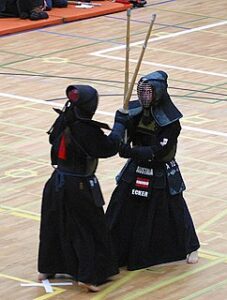
A university that produced famous kendo practitioners
The University of Tsukuba stands out as a university that has produced kendo practitioners who have had a great influence on the Japanese kendo world.
The university has a track record in many sports, not just kendo, and provides high-level technology and education in kendo as well.
Meiji University and Kokushikan University also have strong kendo clubs and have trained many famous athletes.
Graduates who have made an impact on the Kendo world
One of the most famous alumni in the Kendo world is Masahiro Miyazaki.
He is a member of the Kanagawa Prefectural Police Kendo Club and has won the All Japan Kendo Championship six times, earning him the nickname “Heisei Kensei” for his skill and mental strength.
Miyazaki was known for his exceptional fighting style, possessing the speed and precision to crush his opponents in short intervals ( Wikipedia ) .
Graduates’ careers and contributions to Kendo
There are many ways in which our graduates form their careers through Kendo and how they contribute to the Kendo world. For example, many Kendo practitioners use their teaching skills to teach younger students, and also strive to popularize Kendo education.
After retiring, Masahiro Miyazaki himself focused on training younger players and continues to influence many Kendo players ( Wikipedia ) .
The Kendo practitioners produced by these universities have mastered their skills not only in competition, but also in education and social contribution, further enriching the culture of Kendo.
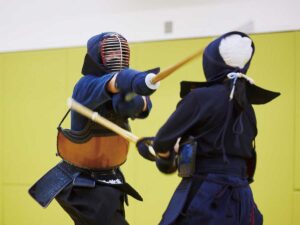
The role and influence of university kendo both domestically and internationally
University Kendo plays an important role in improving and popularizing Kendo techniques both in Japan and abroad.
In Japan, universities offer advanced training programs and serve as opportunities for student-athletes to improve their skills.
On the other hand, internationally, university kendo contributes to the promotion of international exchange as a part of Japanese culture.
In particular, the success of Japanese university athletes in international tournaments such as the World Kendo Championships has helped Kendo become widely recognized around the world.
Activities and exchanges at international competitions
University Kendo athletes have achieved remarkable success in competitions around the world and are respected in the international Kendo community.
For example, schools like the University of Tsukuba and Kokushikan University regularly participate in the World Kendo Championships organized by the International Kendo Federation (FIK) and win many medals.
These tournaments also serve as opportunities for technical exchange between athletes from different countries, and serve as a bridge not only for skills but also for cross-cultural understanding.
Promoting international understanding and cultural exchange through Kendo
Kendo is more than just a competition; it contributes to the promotion of international understanding from an educational and cultural perspective.
Kendo programs at the university level serve as bridges between different cultures, creating a foundation for international friendship and mutual understanding.
Specifically, international kendo workshops and seminars are often held, where people from different backgrounds have the opportunity to come together and learn about each other’s cultures through the common interest of kendo.
Through these activities, we can see that Kendo not only plays a valuable role as a sport, but also in promoting international understanding and friendship.
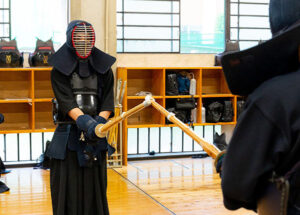
Future prospects and challenges
Although the future outlook for the Kendo world is bright, there are several challenges.
Due to the progress of globalization, the importance of international kendo tournaments is increasing, but with this, there is a need to unify international rules and increase the transparency of management.
Another challenge is to spread Kendo to the younger generation and continue to make it appealing.
There is a need to leverage technological advances to develop more engaging and accessible Kendo content.
Strategy for sustainable development of Kendo club
To achieve sustainable development, the Kendo Club must strive to attract new members and retain existing members.
An effective way to achieve this is to deepen ties with schools and local communities, and to regularly hold events and demonstrations to spread the appeal of Kendo.
Additionally, in order to improve the quality of Kendo education, it is important to develop and retain skilled instructors.
Raising funds for Kendo club activities is also an important strategy, and efforts must be made to increase sponsorship and donations.
New challenges and technological innovation
A new challenge in Kendo could be the use of digital technology.
For example, we can offer kendo experiences using virtual reality (VR) and kendo classes online.
This allows us to provide access to people who want to learn Kendo beyond geographical constraints.
Furthermore, the development of tools to analyze Kendo techniques and improve performance using AI technology will also contribute to technological innovation in Kendo.
By incorporating these techniques, we hope to convey the appeal of Kendo to more people and increase the number of participants.
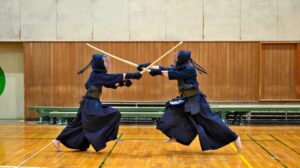
Summary: Future and expectations of Kendo University Club
Kendo University Clubs play an important role in influencing students not only in terms of competition, but also in terms of education and culture.
Through these extracurricular activities, students hone their Kendo skills while learning traditional Japanese values such as courtesy, respect, and self-improvement.
The future of the Kendo club is expected to focus not only on technical improvement, but also on passing on these values.
The impact of Kendo on students’ lives
Kendo is more than just a sport in the lives of our students.
Through this martial art, students develop self-control, patience, and concentration, and these skills are also beneficial in their studies and future professional life.
Kendo is also known for developing mental strength, providing students with the ability to cope with adversity.
This allows students to develop a stronger personality and utilize it in various aspects of life.
Contributing to the preservation and inheritance of Kendo culture
University Kendo clubs play an essential role in preserving and passing on Kendo, a traditional Japanese culture.
Many universities hold kendo tournaments and seminars to spread not only the techniques of this martial art, but also its spirituality and philosophy.
Additionally, by promoting international exchange, we strive to ensure that Kendo is understood and respected around the world.
Through these efforts, Kendo has established itself as not just a competition, but a cultural heritage that should be passed down from generation to generation.
These activities emphasize that Kendo is not just a sport, but has deep educational value and cultural significance, and it is hoped that Kendo will continue to preserve its traditions into the future.
